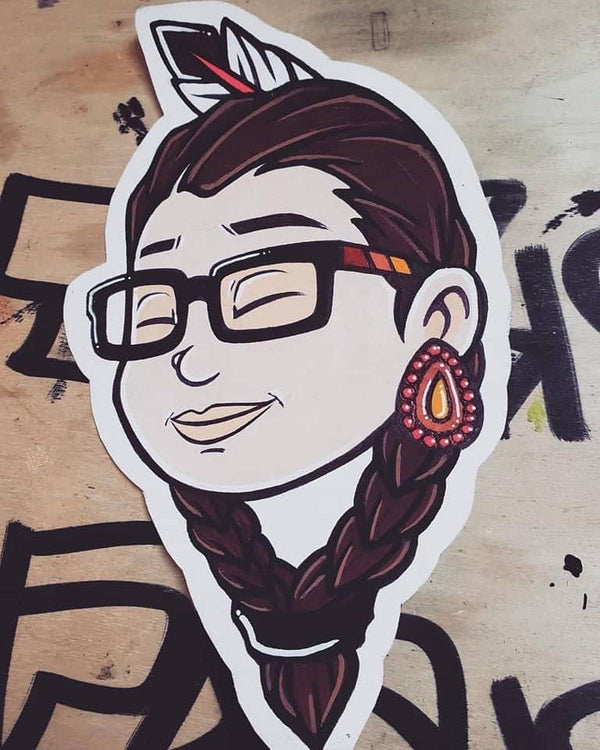My quiet thoughts about International Women's Day

As I reflect on this International Women’s Day, I find myself reflecting on the quiet yet powerful leadership of Indigenous women whose model I have learned much from. I recently listened to my aunty speak about learning from the past and on this International Women’s Day I honour those who have safeguarded our communities, knowledge, and traditions for generations. Leadership is not just about taking the front stage; it is about ensuring the foundation remains strong for those who follow. I have been quietly observing the world around me and feeling the turbulence in my own journey. It has become evident to me that societal divisions are deeper where many are craving the need to be a part of something bigger than themselves. Though I have never experienced a lack of community, I can imagine how isolating it must be, leaving a person searching for belonging and recognition.
Indigenous governance has long understood the importance of shared leadership.
In the heart of all this turmoil there seems to be a fire burning between the constructs of the matriarchy and the patriarchy. I realize as I write this that this perspective is relatively binary and oversimplifies the complexities of our social “star blanket”, (a reference I use to describe our diverse but unified connection to each other). As a nehiyaw woman, I have learned that real leadership is not taking a stand in the front but rather being in service to the people from behind. I recognize that true leadership is caretaking and maintaining a strong foundation for the people you serve. I learned this from my grandmothers and the many women in our community who maintained the foundation of our community so that I can find my way safely. This is the role of the Matriarch.
Our communities and nations have practiced forms of governance where women play pivotal roles. When I think of this, I am reminded of many women I have met along my journey including some from the Haudenosaunee Confederacy, a nation that operates on a matrilineal system where women hold significant authority. Women who were the ones responsible for selecting and advising Chiefs, maintaining social order and preserving cultural traditions. This form of leadership ensures that decisions are made with the welfare of the entire community in mind and are reflective of a harmonious balance between genders.
Reference: not specifically the contents of a wiki page but rather the references cited at the bottom. en.wikipedia.org+1en.wikipedia.org+1
Another example I read about as I researched for this blog, was in Australia. I read many stories of Indigenous women who courageously shared their stories, advocating for systemic change to protect their communities. Antoinette Braybrook AM, CEO of Djirra and co-Chair of Change the Record, an organization that emphasizes the need for a unified action from other leaders to implement long term solutions that prioritize the safety and well-being of First Nations women and children. theguardian.com+1cntraveler.com+1
I like to believe that my role today is an extension of this type of leadership. I am not Haudenosaunee but rather Cree (nehiyaw) with similar value systems and respect for the ways in which other cultures value the woman, the iskwewak; the heart of the home and the one who can hold fire. This form of leadership is inherent in Indigenous matriarchal systems; community centric decision making, respect and honour for all members and a sustainable way of caretaking of the resources. We can learn a lot from understanding how to incorporate this way of thinking, perhaps creating a space in our leadership to ensure we are making decisions with a generational perspective. This way of thinking challenges the often hierarchical and individualistic tendencies of patriarchal systems and proposes this idea that power is shared and leadership is exercised through nurturing and inclusivity; in service of the people we lead.
To me this is my way forward, especially in this challenging time, we need to embrace the knowledge of those who came before us and trust that they have equipped us with everything we need to lead in a good way. It is the answer to a more equitable and harmonious society. The answer to our current challenges is to value the strengths from both the matriarchal and patriarchal systems, utilize them so we can move beyond divisive binaries and foster a leadership model that truly serves all members of our communities.
On this day of recognition, I encourage you to look beyond the surface of leadership and honor the women who lead through service, wisdom, and resilience; those who hold the fire that feeds our communities.
Indigenous Women Leading the Way in Environmental and Social Justice
In Her New Memoir, Activist Nemonte Nenquimo Charts Her Journey to Save the Amazon
In an era of environmental crises, women closest to the destruction must be heard









1 comment
Beautifully written!
Thank you!